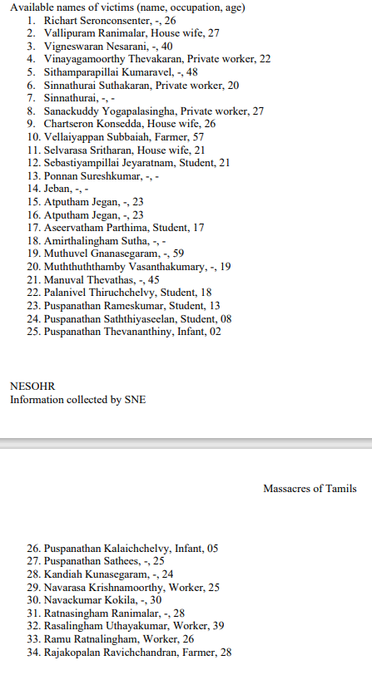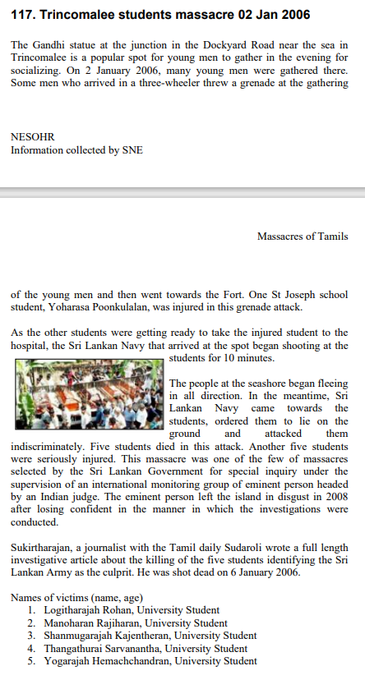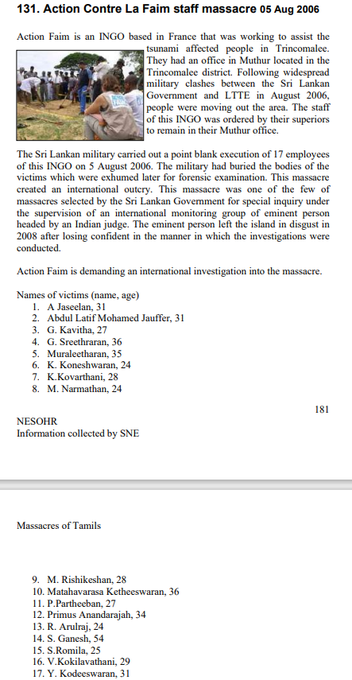Either lack of knowledge, ignorance, or political agenda, there is huge lobbying behind pitting Tamils in Tamil Eelam vs Tamil in Malayakam. There is a portrayal that Tamils from Tamil Eelam oppressed Malayaka Tamils using caste. Let me take this opportunity to pan out the REAL history of Malayakam and Tamil Eelam.
The reason I have used both landmarks separately, not grouped them as Eezha Tamils, so that people see both histories, especially the geographical location and the impossibility of many facts people here propagate.
Map of Eezham with Tamil Eelam and Malayakam populations highlighted in orange and yellow respectively.
P.S. One must see the geographical barriers that exist between both Tamils in Eezham
P.S.S. Picture 2 indicates the region of Tamil Eelam which has drastically shrunk in the first map
What is the history of Malayaka Tamils?
Tamils from Tamil Nadu were brought to Ceylon as indentured laborers by the British with the promise of granting citizenship. They were settled in the ‘hill region’ of the island as they were brought to work in the plantation, with no close geographical tie with the rest of the Tamils who are natives to the island. This might be a tactic by the British to misuse them. We have seen colonials in North America separating African tribes who were brought as slaves to oppress them. Once the British left and the country gained a lot from the labour of these Tamils, Sri Lanka decided to evoke their citizenship and send them back. Though Indira Gandhi tried to come to a resolution, after her demise, there was no representative for these Tamils from India. They were left Stateless.
Tamil leaders from the island then (and now) continued to fight for the Tamils in Malayakam. A Tamil activist who made a huge impact was S. Nadesan, a leading Tamil lawyer, civil rights activist, and member of the Senate of Ceylon. A year before the Citizenship Act was brought on, Nadesan addressed this issue in Sri Lankan parliament. We must note that he was voted to represent Tamils from Kankesanthurai, Jaffna. During this time, Tamil political representatives from Malayakam were supporting United National Party.
In 1947, his voice was the first voice in Parliament to voice for Malayaka Tamils. He continued to address the importance of land rights to the people of Malayakam. He went to the parliament as an independent senator. In 1948, once again, when the Citizenship Act was brought on, Nadesan’s voice was one of the loudest speaking against it. We must also note that GG Ponnambalam also called UNP a racist party and DID NOT vote in favor of this act. In his last speech, Nadesan mentioned that Lord Salisbury's report from March 1875, indicated the conditions that Malayaka Tamils were brought to Ceylon. He made a legal case to defend Malayaka Tamils' rights in Ceylon.
“March 1875, Lord Salisbury stated that an indispensable condition of indentured immigration that Indians who completed their terms of indentured should be in all respects, free men, subject to no labor ordinances and with the personal privileges no with inferior to any other class in that colony.”
He proved that they are legally in their homeland. He was the first to address the contract and prove legally that they were allowed to settle as citizens on this island. According to the contract, after the first 5 years of the indentured period are completed, they are allowed to settle anywhere on the island as independent individuals and hold any employment that is accessible to those who habit the rest of the island. The contract indicated that once their term was completed, they should be free to return to India or settle on the island as citizens. We later saw how these people were betrayed by both the Indian and Sri Lankan states.
Sharing part of his speech at the Parliament below:
“Today it cannot be said that with the limited Indian population, who can at the most send 7 or 8 representatives into the house of representatives of 101, there is any danger of those 7 or 8 members dominating the political life of the country. That is not an argument that can lie in the mouth of the government. In these circumstances, only things that should be done is to assimilate the entire Indian population in this country because that will strengthen the economy of Ceylonese nation and not keep them as a separate and distinct group of people who have no rights at all in this country….Even if the entirety of 700,00 of them exercise their vote, they can at most send 7 or 8 members out of the 101 of the House of Representatives. That is the aspect of the matter that has stuck me as rather curious, that today, nobody that calls himself a statesman should take it upon himself to say that we will get these persons to do all these works. But so far as franchise rights are concerned, despite the fact that we will not be dominated, we will not give them anything even though they are willing to declare themselves as citizens of Ceylon.”
To learn more about his work and his fight for the rights of Malayaka Tamils:
https://t.co/KPcpYRGqxy via @mrpaluvets
We must also note that when the Sri Lankan government denied their right to citizenship, Muslim leaders like Dr.MCM Kaleel and Tuan Burhanuddin Jayah were the first to vote in favor of it. In 1949, based on differences of opinion regarding Sri Lanka's adoption of the Citizenship Act, which deprived the Tamils of their citizenship, Thanthai Selva [ S. J. V. Chelvanayakam], along with C. Vanniasingam and Senator E. M. V. Naganathan, left All Sri Lankan Tamil Congress and formed Illankai Tamil Arasu Kachchi (ITAK) in Mavitapuram, Jaffna. ITAK demanded federalism saying that the unitary system was not suitable for Tamils to live with their rights in Sri Lanka.
Along with Tamil politicians who have fought for the rights of Malayaka Tamils, we have communist leaders like Lawyer Shamugathasan, popularly known as Thozhar Shan, who collectively fought for Tamils' rights, against racial to caste-based oppression, across the island. He initiated many trade unions across the island, especially in Malayalam, and continued to represent those people legally, free of charge in many cases.
A young man named Manokaran, from Karaveddy, Jaffna became ‘Tholar Neopolean’ to fight for the rights of Tamil across Eezham. He was in Peravai fighting for Tamils in North and East against Sinhala oppression. From Jaffna, he went to Malayalam and formed Malayaka Makkal Munnani (Up-Country People's Front (ULO)). In 1986, he was killed in Malayakam by Indian intelligence for training and arming Tholar Tamilarasan from Tamil Nadu. @balantholar is a living witness of such men's contribution.
Tamil Tigers, while fighting for the Tamil state, which was put forward by Thanthai Selva and carried out till day by Tamil nationalists, also wanted to support Malayaka Tamils. Tamil Tigers did not just release statements to please people like we see now with many political leaders in other Tamil homelands, they implemented the changes. Under the defacto state of Tamil Eelam, gender equality, and caste abolishment did happen. Everyone lived as equals and without fear. They also cared about what was happening in Malayakam and encouraged Tamils to relocate to the North and East. Many Malayaka Tamils did relocate and many have been calling North and East home to date. Puthukudiruppu still stands there as one of the towns with a large number of Malayaka Tamils assimilated. LTTE’s statement below:
As we saw that Tamil representatives from Tamil Eelam did the voice for Tamils across Eezham, what did the representatives of Malayakam do?! As we saw earlier, they didn’t challenge the Citizenship Act nor did show solidarity with S. Nadesan or Thanthaiselva. Contrary to popular belief, the Thondaman family DID NOT hail from the oppressed class or were brought in as indentured laborers. Karuppiah, the father of Savumyamoorthy Thondaman, was brought to Ceylon as “Head Kangany” and, of course, was from a dominant caste. Eventually, he made a fortune by buying the British-owned estate he worked at. With the dominance he had, his son Savumyamoorthy was educated in management, and eventually managed his dad’s estate, along with other leadership roles, including as a politician.
For more than 50 years, Thondaman was the leader of the Indian estate community and what has he done for them? Kept [Jeevan continues to play the role] the plantation workers oppressed generation after generation. He played a huge role in setting the political leader of the island: as head of the Ceylon Workers Congress (CWC), the island’s strongest trade union, he always swayed the votes to both the United National Party (UNP) and the Sri Lanka Freedom Party (SLFP). Numerous times, he was also a member of the parliament and for the last 22 years of his life, he held important cabinet office in the governments of J.R. Jayewardene, R. Premadasa, D.B. Wijetunge and Chandrika Kumaratunga. With such power and influence, what has he done for the people whom he represents? Did he fight for their basic rights? Did he improve their livelihood? The answer is what we see in present Sri Lanka: oppressed Malayaka makkal fighting for their day-to-day living. Politicians from the Thondaman family are nothing but “shrewdly-cunning politicians” who lever on the Malayaka makkal votes to influence their political gains. They continue to play dirty vote politics we see in Tamil Nadu. Caste-based oppression and caste-based politics thrive in Malayakam due to this family. They have a history of:
▪️ Dividing ppl based on caste [caste-based karai vesdi arasiyal]
▪️ using their political power to earn well for their family
▪️neopotism in politics
Even now, with the country’s economic disaster, Malayaka people are impacted severely but in his recent trip to India, see what Jeevan Thondamaan’s priorities are:
Could Thondaman’s have done more to uplift Malayaka Tamils? Yes
Are they doing anything to make changes? No
This is the state of those who represent them.
We have seen the geographical differences and we have seen Tamil leaders supporting Malayaka Tamils. But the propaganda blames Tamil Eelam Tamils for the oppression of Malayaka Tamils. The majority of the oppression happens within Malayakam or in Colombo by Chettiyars whose origins go back to Tamil Nadu. Chettiyar wanting their own racial identity is purely for business and for selfish reasons. Just as other Muslims on the island collated Tamil Muslims as 'Muslims' only for their political gain, Chettiyars play the same dirty politics in Colombo. I am not excusing the minor % of Tamil Eelam Tamils who also have benefited from misusing Malayaka Tamils' labor. But contrary to popular belief, oppression of this sect of Tamils comes within their group and by the Sinhala State.

































































































































































































































































































